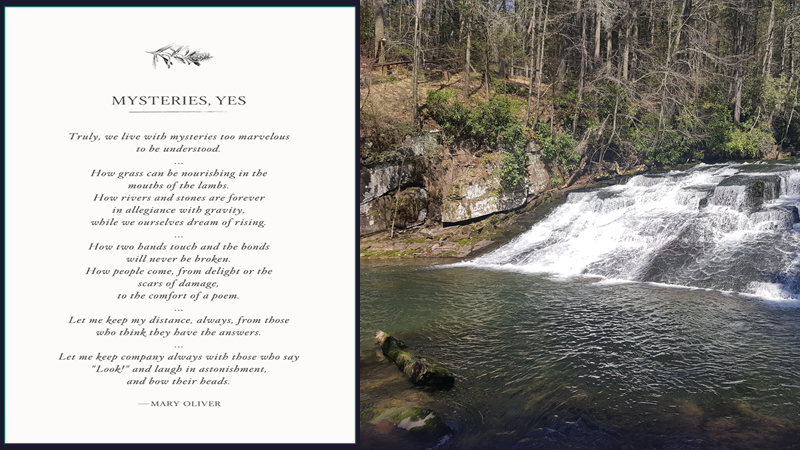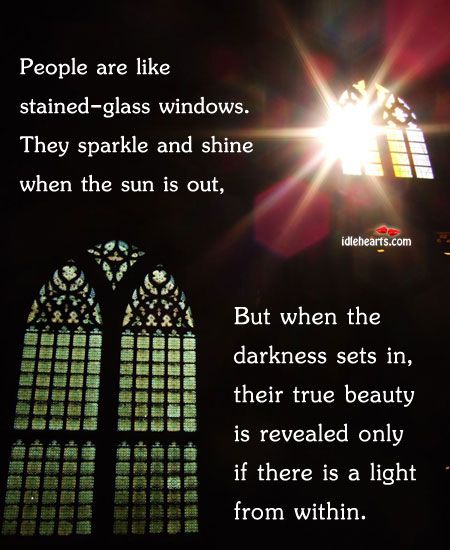May we always find wonder and delight in the mysterious and be filled with awe! Enjoy the beauty that is within and around you today….and experience joy!

Greater Boston Nursing Collective
Sharing the Six Principles of Integrative Nursing
May we always find wonder and delight in the mysterious and be filled with awe! Enjoy the beauty that is within and around you today….and experience joy!

Joy is being touched and being inspired by a woman who truly made a difference in our rough and tough world!

Eula Hall founded the Mud Creek Clinic, now known as the Eula Hall Health Center, in Grethel, Ky., bringing healthcare to a remote area in Appalachia half a century ago.
Born into a poor eastern Kentucky farming family in 1927, Eula Hall left school after the eighth grade, worked as a domestic cook and cleaner, married an abusive husband and helped him make moonshine. Lacking dental care, she lost all her teeth by age 40.
On the plus side, Ms. Hall gained a reputation as a self-taught social worker who fought for decades to bring medical treatment and clean water to her Appalachian neighbors.
In 1973, fed up with the failures of a federal program, she decided to take matters into her own hands by founding the nonprofit Mud Creek Clinic in Grethel, Ky. Staffed by idealistic young doctors and nurses, the clinic provided basic care and advice for people who in some cases had never before had professional medical services. Ms. Hall added a food pantry. She drove through the hollers, or valleys, to pick up people who lacked transportation.
Ms. Hall died May 8 at her home in Craynor, Ky. She was 93.
The clinic became a model for community-health centers serving low-income people. While badgering politicians for more healthcare funding, she made friends with powerful Democrats and Republicans. “She was among the toughest women I’ve ever met,” Sen. Mitch McConnell, a Kentucky Republican, said in a tribute.
The clinic is now known as the Eula Hall Health Center, part of a network operated by Big Sandy Health Care Inc., a nonprofit. The center provides primary care along with vision and dental services and operates a pharmacy.
Kiran Bhatraju met Ms. Hall because his father, an immigrant from India, worked in her clinic. The younger Mr. Bhatraju wrote a biography of her, “Mud Creek Medicine,” published in 2013.
“You give me too much credit,” Ms. Hall told the author. “You see, I’m actually just too damn stubborn to sit by and let the world be cruel to my family and friends.”
She was born Eula Riley, the second of seven children, on the floor of her family’s four-room cabin in Pike County, Ky., on Oct. 29, 1927. The cabin lacked electricity and indoor plumbing. Her father was a tenant farmer. Her mother had worked as a schoolteacher.
One of young Eula’s early memories, according to “Mud Creek Medicine,” was watching her mother nearly bleed to death, in the absence of medical care, while delivering a stillborn child.
As a child, Ms. Hall was a dreamer. “I always wanted to be somebody,” she said.
‘What we do is we keep little problems from becoming major problems.’
— Eula Hall, in a 1987 interview with the Louisville Courier-Journal
At age 14, after completing middle school, she went to work, cooking for coal miners in a boardinghouse and scrubbing their muddy clothes with a washboard. At 17, she married McKinley Hall, a miner. When he wasn’t mining, he made moonshine, with her help. She later described their product as “good, clean and safe.”
Ms. Hall offered to help a neighbor find hospital care when she was about to give birth. She drove the neighbor to one hospital, and then another. They were turned away from both. At a third hospital, Ms. Hall gained admission for her friend only after threatening to call the local newspaper.
Later, Ms. Hall publicly confronted an executive of a local hospital company about what she said were hollow promises to serve people who couldn’t pay. She berated a school board that shamed children who got subsidized lunches by forcing them to sit apart from their better-off peers. She also pushed for a new water-distribution system to reduce reliance on contaminated wells.
In 1967, the federal Office of Economic Opportunity provided funding for a Floyd County, Ky., health-services program. Ms. Hall complained that it sent patients to hospitals they couldn’t afford and was “mostly just a glorified taxi service.” Some local doctors attacked the program as unfair competition that would drive out private-sector physicians. Citing mismanagement, the federal agency cut off funding in 1971.
Ms. Hall set up her own informal health service in an old trailer perched on cinder blocks. “I didn’t know what the hell I was getting into,” she said later.
‘She was absolutely dedicated to bringing healthcare and legal aid—really, justice—to her neighbors.’
— Mary Swaykus, who worked at Mud Creek Clinic in the 1970s
At first, her Mud Creek Clinic mainly offered advice for people trying to find medical care. Later she attracted young doctors to staff the clinic. Some of the early funding came from a miners union.
“She wanted things done her way,” said Mary Swaykus, who worked at the clinic in the mid-1970s. “She was bossy; she was tough; she was absolutely dedicated to bringing healthcare and legal aid—really, justice—to her neighbors.” People with black lung disease, diabetes and rheumatoid arthritis found help at the clinic. One patient paid his modest fee in the form of cabbage.
Meanwhile, Ms. Hall divorced her husband, whom she accused of beating her when he was drunk. The clinic gave her a modest income that allowed her to support herself.
In June 1982, a fire destroyed the clinic. Ms. Hall cried for the first time in decades. She suspected arson. Within days, she was serving patients at a picnic table next to the ruins of her clinic. Soon it moved temporarily into a school lunchroom.
Ms. Hall began raising money for a new building by holding yard sales and potluck dinners. Sympathetic police officers looked the other way when she staged roadblocks on a highway to collect donations from passing drivers. A story about her on national television drew donations from faraway admirers. The new clinic opened in 1984.
Ms. Hall’s survivors include four children, eight grandchildren, 14 great grandchildren and five great-great grandchildren.
In a 1987 interview with the Louisville Courier-Journal, Ms. Hall spoke of the challenge of attracting doctors to work for low salaries in a rural area. “Ain’t nothing here but hard work and sick people,” she said. On the other hand, she said, advice and preventive medicine went a long way. “What we do is we keep little problems from becoming major problems.”
From the Wall Street Journal, May 14, 2021 10:00 am ET
